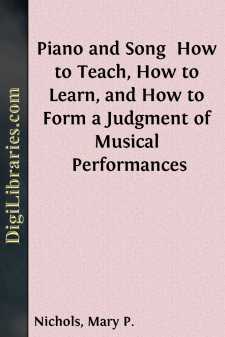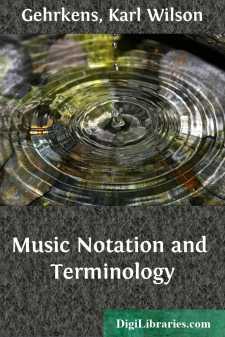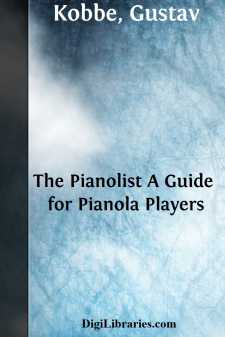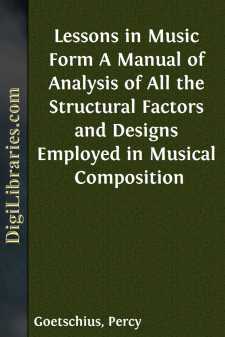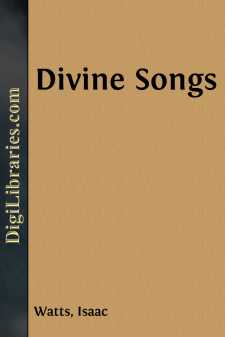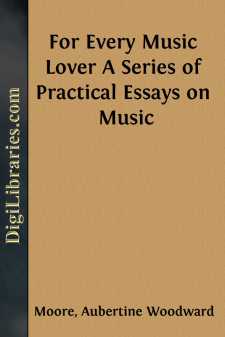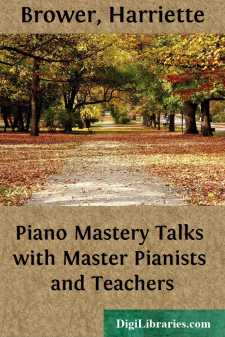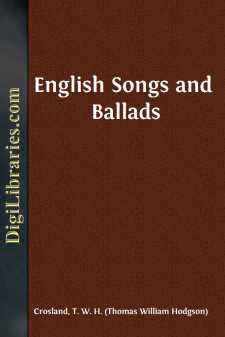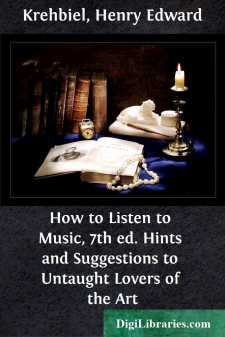Music
Music Books
Sort by:
by:
Taha Atef
Are you ready to unleash your voice and build a podcast empire? "How to Make a Podcast with 1 Million Subscribers" is your ultimate roadmap to podcasting success. Whether you're a complete novice or have dabbled in audio content before, this comprehensive guide will take you from zero to podcast hero. Inside these pages, you'll discover: A foolproof, step by step process to launch your...
more...
by:
Mary P. Nichols
CHAPTER I. ON ELEMENTARY PIANO-FORTE INSTRUCTION. You ask, my dear friend, for some particular information about my piano method, especially with regard to my mode of elementary instruction, which differs essentially from that in common use. I give you here the main points; and, if you place confidence in my experience of forty years, and if you will supply those details which I have omitted, your own...
more...
PREFACE The study of music notation and terminology by classes in conservatories and in music departments of colleges and normal schools is a comparative innovation, one reason for the non-existence of such courses in the past being the lack of a suitable text-book, in which might be found in related groups clear and accurate definitions of the really essential terms. But with the constantly increasing...
more...
by:
Gustav Kobbe
I. THE TITLE AND PURPOSE OF THIS BOOK My book, "How to Appreciate Music," in the chapter devoted to the pianoforte, contains a paragraph relating to the Pianola and its influence in popularizing music and stimulating musical taste. I confess that before I started that paragraph I was puzzled to know what term to use in designating the instrument I had in mind. "Mechanical piano-player"...
more...
by:
Percy Goetschius
CHAPTER I. INTRODUCTION. THE NECESSITY OF FORM IN MUSIC.—So much uncertainty and diversity of opinion exists among music lovers of every grade concerning the presence of Form in musical composition, and the necessity of its presence there, that a few general principles are submitted at the outset of our studies, as a guide to individual reflection and judgment on the subject. Certain apparently...
more...
by:
Isaac Watts
My Dear Young Friends, Whom I am constrained to love and honour by many Obligations. It was the generous and condescending Friendship of your Parents under my weak Circumstances of Health, that brought me to their Country-Seat for the Benefit of the Air; but it was an Instance of most uncommon Kindness, to supply me there so chearfully for two Years of Sickness with the richest Conveniences of Life....
more...
I One of the most interesting of the many interesting stories of our civilization is the story of Music. It affords an intimate knowledge of the inner life of man as manifested in different epochs of the world's history. He who has failed to follow it has failed to comprehend the noblest phenomena of human progress. Mythology and legendary lore abound in delightful traditions in regard to the...
more...
by:
Harriette Brower
I. One of the most consummate masters of the piano at the present time is Ignace Jan Paderewski. Those who were privileged to hear him during his first season in this country will never forget the experience. The Polish artist conquered the new world as he had conquered the old; his name became a household word, known from coast to coast; he traveled over our land, a Prince of Tones, everywhere...
more...
About the sweet bag of a beeA chieftain to the Highlands boundAe fond kiss, and then we severAgincourt, AgincourtAh, my swete swetyngAlas! my love, you do me wrongAllen-a-Dale has no faggot for burningAll in the Downs the fleet was moor'dAll ye woods, and trees, and bowersAnd did you not hear of a jolly young WatermanAn old song made by an aged old pateA parrot from the Spanish mainArm, arm, arm,...
more...
IntroductionThe book's appeal.This book has a purpose, which is as simple as it is plain; and an unpretentious scope. It does not aim to edify either the musical professor or the musical scholar. It comes into the presence of the musical student with all becoming modesty. Its business is with those who love music and present themselves for its gracious ministrations in Concert-Room and Opera...
more...



